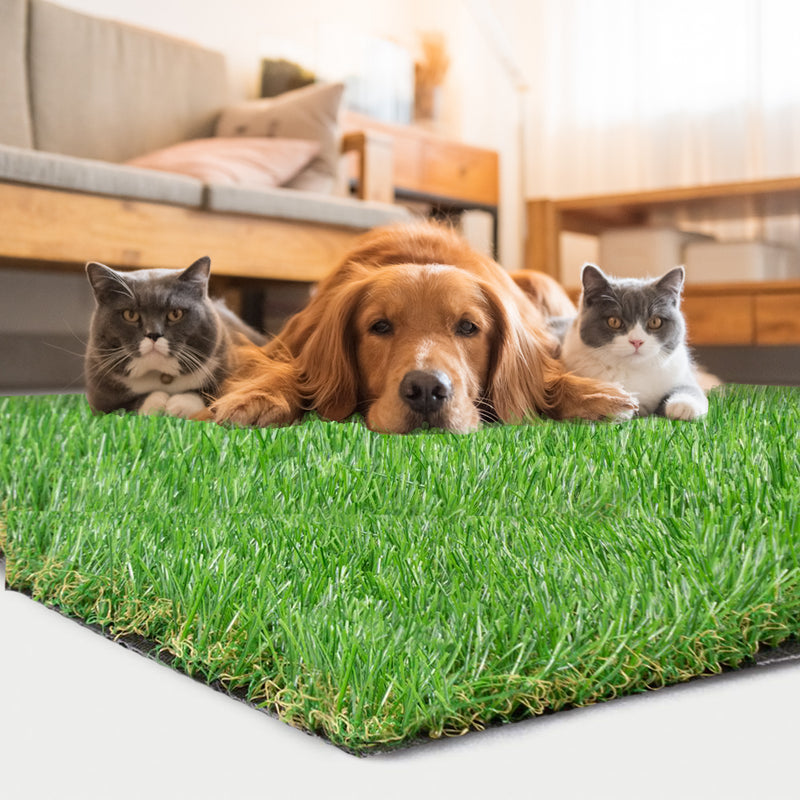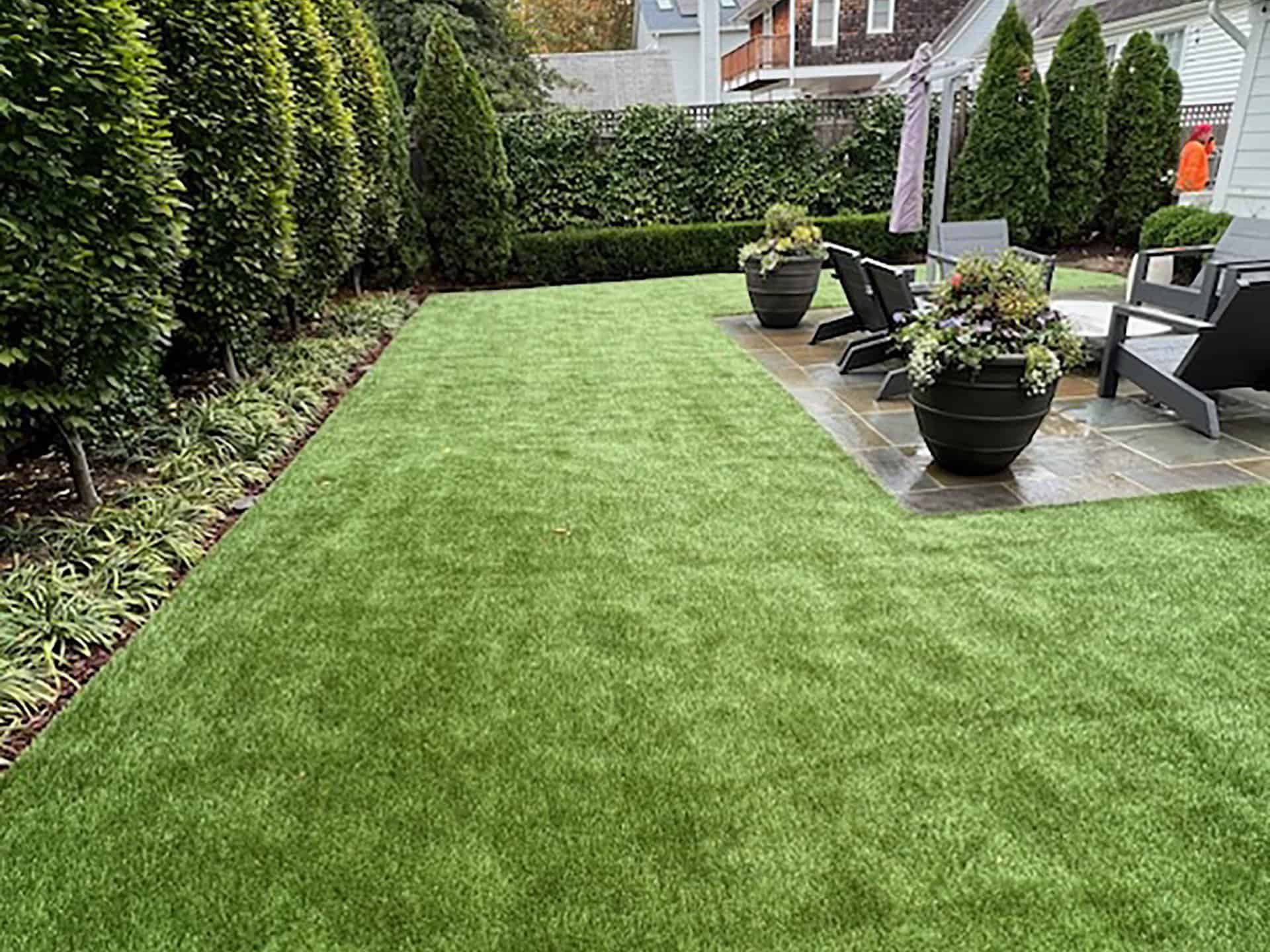Look Into the Environmental Perks of Opting for Artificial Grass Solutions
The fostering of fabricated grass solutions offers an engaging opportunity to address pressing ecological challenges. By significantly decreasing water use and lessening the application of hazardous chemicals, these alternatives not only promote lasting landscape design yet also protect regional communities.
Water Preservation Benefits
One of the most considerable advantages of fabricated turf is its ability to save water. In contrast, artificial grass does not require watering, substantially lowering the total need for water sources.
By eliminating the need for normal watering, artificial turf adds to lasting landscape techniques and assists alleviate the environmental influence of extreme water consumption. The preservation of water extends to the reduction of runoff, which can lead to dirt erosion and river contamination.
In addition, the setup of synthetic turf permits municipalities and homeowners to assign water resources a lot more successfully, concentrating on necessary usages such as drinking water and agriculture. The shift towards synthetic grass not only promotes accountable water usage but likewise straightens with broader environmental objectives targeted at preserving natural deposits.
As neighborhoods progressively focus on sustainability, the water conservation benefits of synthetic grass present an engaging instance for its adoption in domestic and commercial landscaping tasks.
Reduced Chemical Use
The change to synthetic grass dramatically reduces the reliance on chemical treatments frequently made use of in natural grass maintenance. Conventional lawn administration typically includes the application of herbicides, fertilizers, and chemicals to promote development and control pests. These chemicals can position threats to human health, local wild animals, and the environment, contributing to dirt and water contamination.
In contrast, synthetic grass removes the need for these hazardous compounds. As soon as set up, it requires very little maintenance, mainly containing regular cleaning and seldom infill replenishment. This decrease in chemical use not only benefits the instant atmosphere yet also adds to more comprehensive environmental stability. By reducing the release of synthetic compounds into the ecological community, synthetic grass promotes healthier dirt and water systems.
Additionally, the absence of chemical drainage related to synthetic grass installations aids secure regional waterways from pollution, supporting water life and maintaining biodiversity. Phoenix turf companies. As neighborhoods significantly focus on sustainable techniques, going with synthetic turf offers a practical service that aligns with ecological preservation goals. Via this shift, residential property proprietors can delight in lavish environment-friendly rooms without jeopardizing ecological health, paving the method for a more lasting future
Reduced Carbon Impact

In addition, the installation of synthetic grass can index result in significant water conservation. Natural additional resources yards call for considerable quantities of water for irrigation, which not only includes in the carbon footprint connected with water removal and therapy but additionally pressures local water sources. In comparison, synthetic turf needs minimal upkeep, needing no watering, therefore significantly lowering water use and its associated energy costs.
Additionally, the long life of artificial lawn contributes to its reduced carbon impact. With a lifespan of up to 15 years or even more, the need for frequent replacements is diminished, resulting in much less waste and reduced energy usage in production and throwing away conventional lawn alternatives. On the whole, synthetic grass presents a lasting alternative for environmentally conscious landscape design.
Habitat Preservation
Environment conservation is an essential consideration in the argument over landscape design choices, especially when comparing synthetic grass to all-natural lawn. Natural yard yards often require extensive upkeep, consisting of the usage of herbicides, chemicals, and fertilizers, which can negatively impact neighborhood ecological communities. These chemicals can seep right into the dirt and waterways, harming indigenous plants and animals and interrupting neighborhood environments.
Synthetic lawn removes the requirement for damaging chemicals, therefore protecting close-by wild animals and maintaining the stability of surrounding ecosystems. The installation of fabricated lawn can lead to the conversion of previous yard areas right into more biodiverse landscapes, such as pollinator yards or indigenous plant locations, which can support local wild animals.
Eventually, the shift to fabricated lawn not just preserves water and minimizes upkeep efforts yet also fosters a much more unified partnership in between human tasks and the all-natural environment, promoting environment preservation in the process.
Long-Term Sustainability
Long-lasting sustainability is a critical consider examining the advantages of synthetic lawn over conventional lawn yards. Among one of the most significant benefits of man-made grass is its longevity; it can last as much as 15-20 my company years with minimal maintenance, whereas natural grass requires frequent reseeding and substitute. This long life reduces the requirement for constant sources, such as water, fertilizers, and chemicals, which are vital for keeping a healthy and balanced yard lawn.
In addition, synthetic grass contributes to a decrease in carbon discharges connected with lawn treatment devices. Conventional lawns typically need gas-powered lawn mowers, leaners, and blowers, every one of which contribute to air pollution. Arizona turf. On the other hand, man-made turf gets rid of the requirement for such devices, promoting a cleaner atmosphere
Moreover, the production of synthetic grass significantly uses recycled products, boosting its sustainability account. As manufacturers take on eco-friendly practices, the ecological impact of synthetic grass continues to reduce.

Conclusion
The adoption of man-made turf services provides substantial ecological advantages, consisting of considerable water preservation, lowered reliance on hazardous chemicals, and a reduced carbon impact. Synthetic turf help in protecting natural habitats by reducing land disruption and promoting long-term sustainability via the usage of long lasting products. Collectively, these variables highlight the capacity of artificial lawn to add positively to ecological wellness and supply a feasible choice to standard landscaping practices in a significantly resource-conscious world.
In comparison, man-made turf does not need watering, considerably lowering the total demand for water sources. By lessening the launch of artificial substances right into the community, man-made grass advertises much healthier soil and water systems.
Moreover, the installment of artificial grass can result in significant water conservation. In contrast, man-made grass requires minimal upkeep, calling for no watering, consequently substantially decreasing water use and its linked energy expenses.
